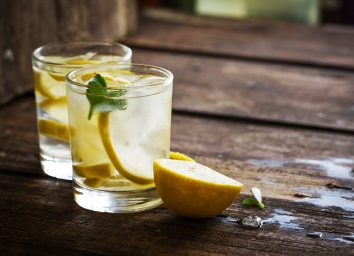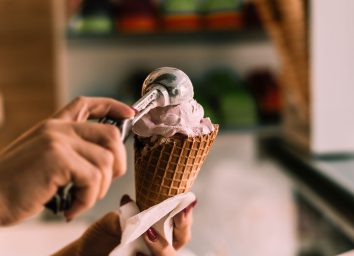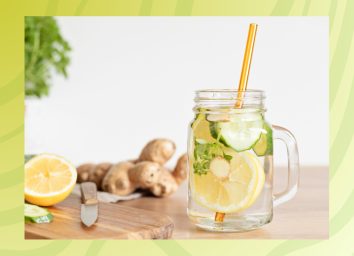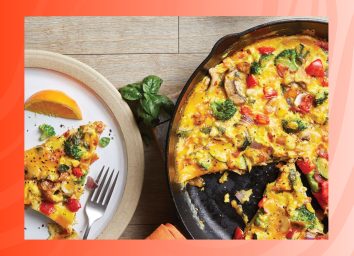Diet Habits That Are Terrible for Your Liver, According to Science
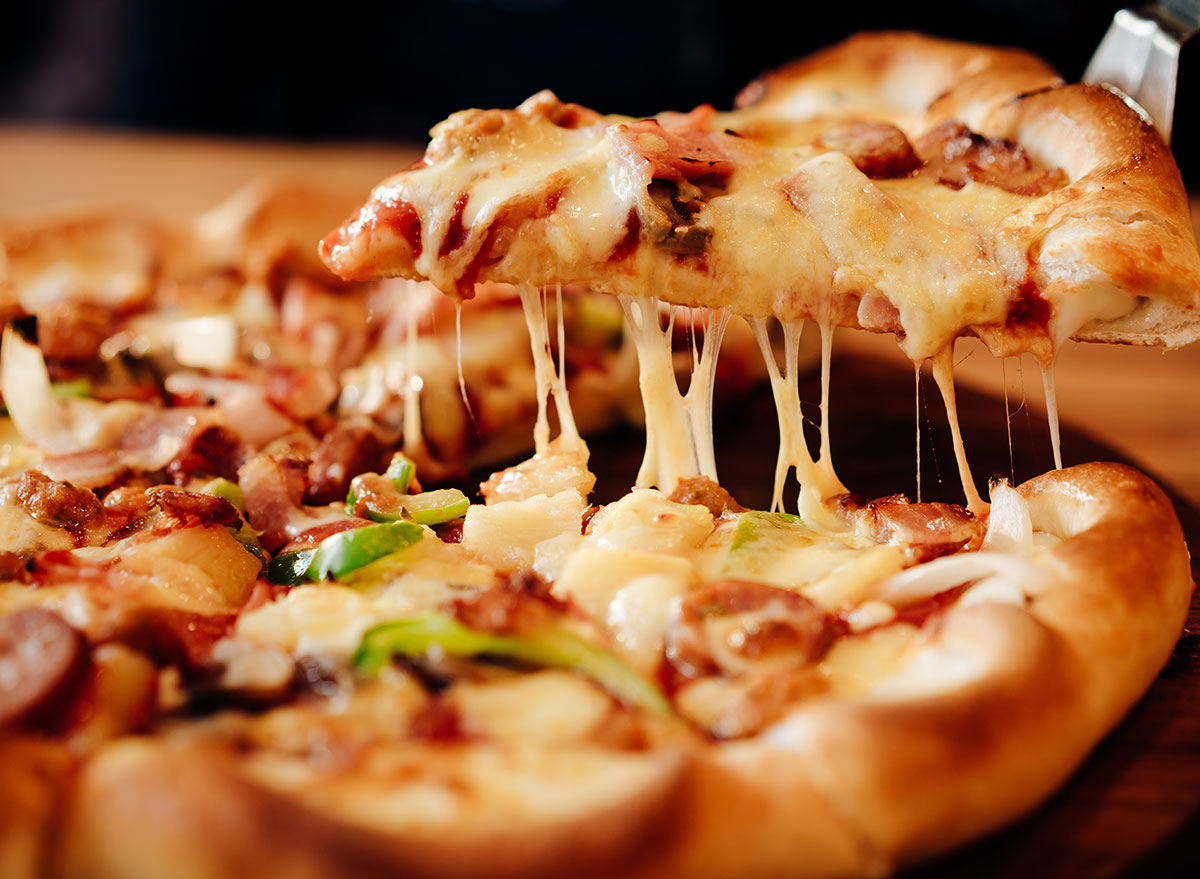
You know your diet affects your body fat and your heart health. But do you ever consider how the foods you eat may impact your liver? There's a silent health crisis affecting a quarter of the American population and it isn't type 2 diabetes—though it's related. It's nonalcoholic fatty liver disease (NAFLD).
NAFLD stalks us stealthily over a long period of time. "Its symptoms don't often manifest until the liver is seriously compromised," says Kristin Kirkpatrick, RD, who has been a dietitian with the Cleveland Clinic for 20 years and is co-author with hepatologist Ibrahim Hanouneh, MD, of the book Skinny Liver: a Proven Program to Prevent and Reverse the New Silent Epidemic—Fatty Liver Disease.
"Nonalcoholic fatty liver disease is silent because, well, the liver isn't a very sexy organ," says Kirkpatrick. "I mean, the heart, brain, and gut are always in the news, but we forget about the liver."
Kirkpatrick explains that the liver is meant to have some fats, but once it gets over 10% fat, you have nonalcoholic fatty liver disease. "Most people won't know this until they have their annual exam, and their comprehensive metabolic panel (blood test) shows their liver enzymes are up. At that point, the physician will typically look at other metabolic markers like being overweight or seeing if their hemoglobin A1c is too high and decides, well this person probably has fatty liver."
Anything you swallow, from sugary drinks to doughnuts, margaritas to medicine, can affect your liver because one of the liver's main jobs is detoxifying and metabolizing what comes in. Keep that in mind as you consider which of these unhealthy diet habits terrible for your liver. Then, be sure to read up on our list of the 100 Unhealthiest Foods on the Planet.
Sugar & Sweet Beverages
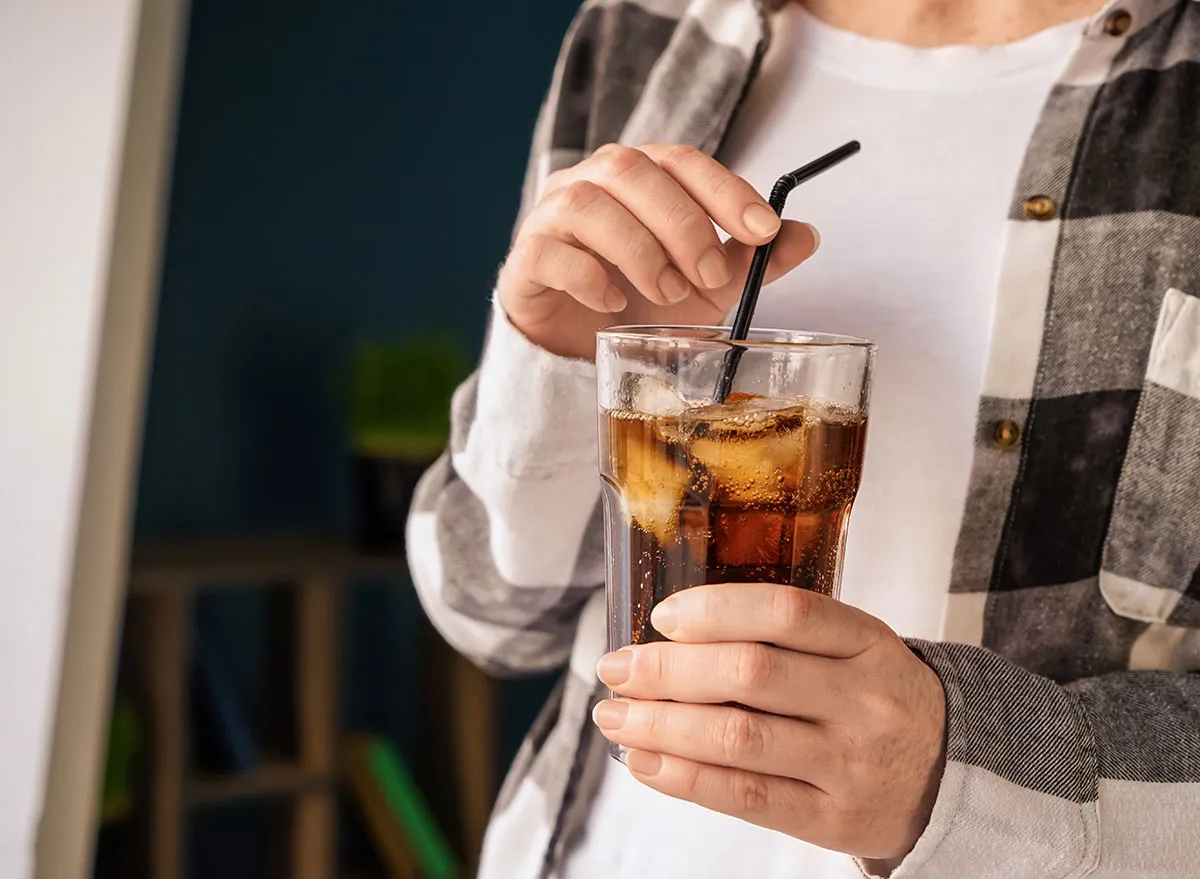
"There are some very clear things that contribute to excess fat production in the liver and sugar is one of them," says Kirkpatrick.
Americans consume an average of 65 pounds of added sugar annually, according to the American Heart Association. The biggest source is sugar-sweetened beverages like soda and sports drinks, grain desserts, fruit drinks, candy, and dairy-based desserts. Sugar and high fructose corn syrup from these sources that aren't used to fuel the body is stored as excess fat in liver cells.
Here are 14 Sneaky Sources of Added Sugars you may not know about.
Refined Carbohydrates
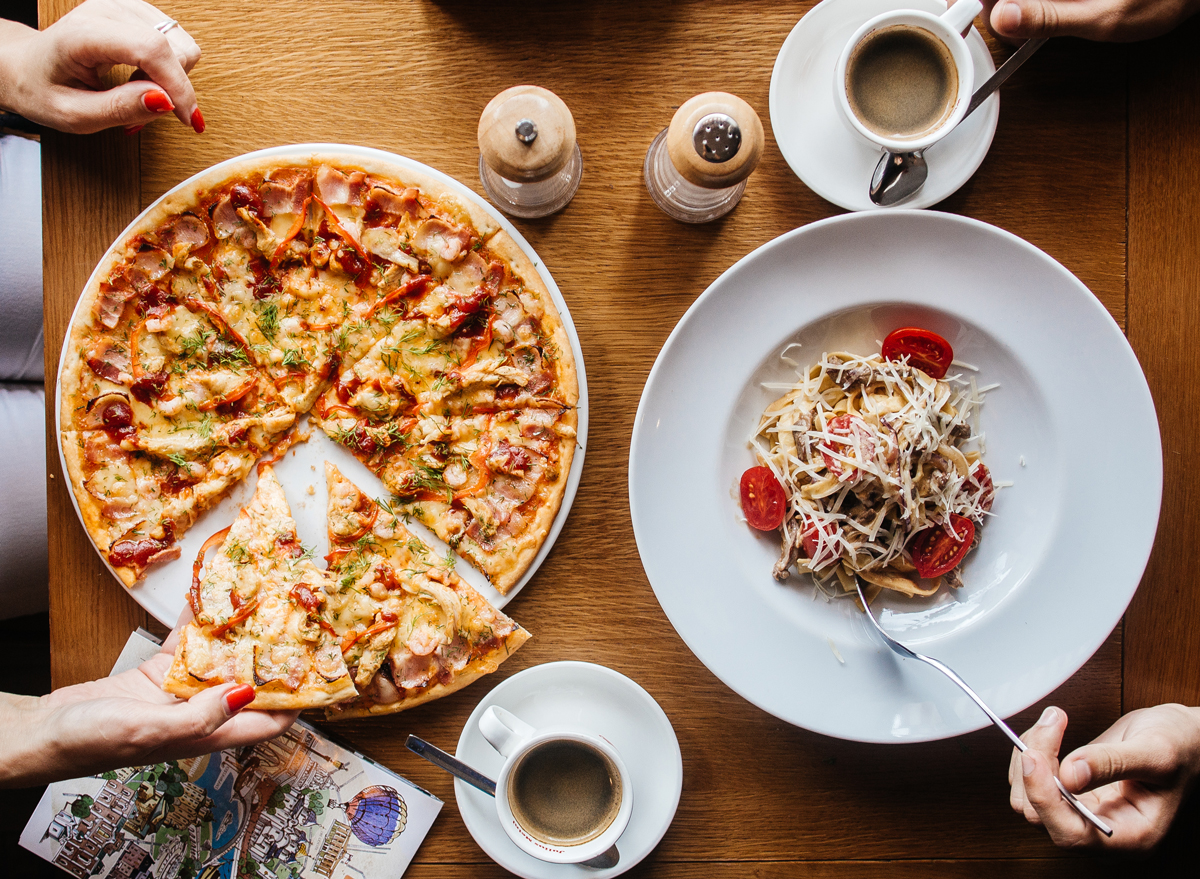
Cookies, cakes, bagels, doughnuts, muffins, and pastries are made from highly refined grains. White bread, hamburger and hotdog buns, pizza dough, crackers, white rice, and pasta all made from refined white flour devoid of fiber and added sugars.
Eating these foods raises your blood sugar and can lead to insulin resistance, which is believed to be a key cause of fat infiltration of the liver, according to the American College of Gastroenterology.
"If you can significantly reduce your refined carbohydrates and sugars, that leads to a reduction in the reliance on insulin and that then helps with reversing the condition in that first stage of NAFLD," says Kirkpatrick. "You want to reduce the fat in the liver to the point where it's no longer diagnostic of the disease."
To achieve that, Kirkpatrick tells her overweight patients "it's time to clean up your diet" and make their diet as close to the Mediterranean Diet as possible. "That's probably one of the best diets for avoiding fatty liver disease." Here are 5 Weight Loss Benefits People Have Experienced on the Mediterranean Diet.
Processed Foods

Almost anything that comes in a box, bag, or can is highly processed food. Think potato chips, soups, mac 'n' cheese, frozen dinners, microwave meals, boxed cereals. Not only do these foods typically contain refined carbs and added sugars, but they are also often loaded with salt. Animal studies in the Journal of Agricultural and Food Chemistry suggest that a high sodium intake can lead to a high risk of liver damage and fibrosis.
Red Meats
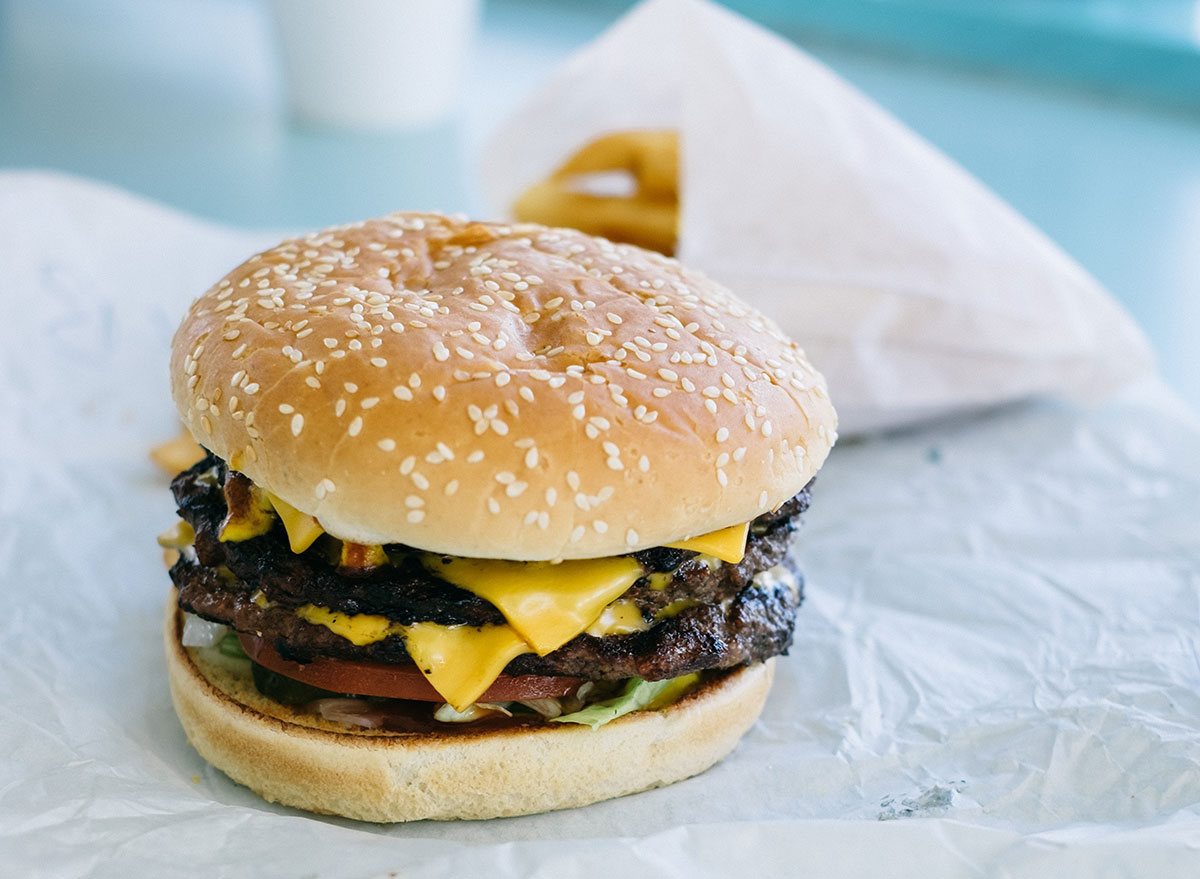
Red meats and other foods that are high in saturated fats (fried foods, whole milk, and cheese) have been linked to nonalcoholic fatty liver disease. A study in The Journal of Clinical Endocrinology & Metabolism comparing overfeeding with saturated fatty acids and overfeeding with polyunsaturated fatty acids for eight weeks found that while weight gain was similar only the increase in saturated fat consumption boosted liver fat content. Similarly, a 2020 study in Diabetes Care found that a diet high in saturated fats had a potent effect on increasing triglyceride droplets in the liver.
Alcohol

Of course, heavy drinking is known to be detrimental to the liver. But even moderate alcohol use can cause additional fat accumulation in the liver for people with nonalcoholic fatty liver disease, according to the University of Michigan Fatty Liver Disease Clinic. Hepatologists there recommend NAFLD patients avoid alcohol entirely or at least minimize alcohol to less than 2 drinks a day for men and 1 drink a day for women.
Eliminating diet habits that are terrible for your liver like these may help you prevent this silent disease. And they will likely lead to another beneficial outcome: weight loss. See, most liver fat content originates from adipose tissue (fat on your body), according to the Journal of Clinical Investigation. Simply losing 10% of your current body weight increases the likelihood that liver fat will be reduced.
Good liver health is a combination of reducing the toxins you ingest (alcohol is a toxin, so are chemicals, preservatives, and pesticides in foods), the sugars, refined carbs, and saturated fats you consume, and avoid becoming overweight.
"Anytime you can lose 5 to 10 percent of your weight, everything improves," Kirkpatrick says.
Start by avoiding these 20 Worst Foods for Weight Loss.
